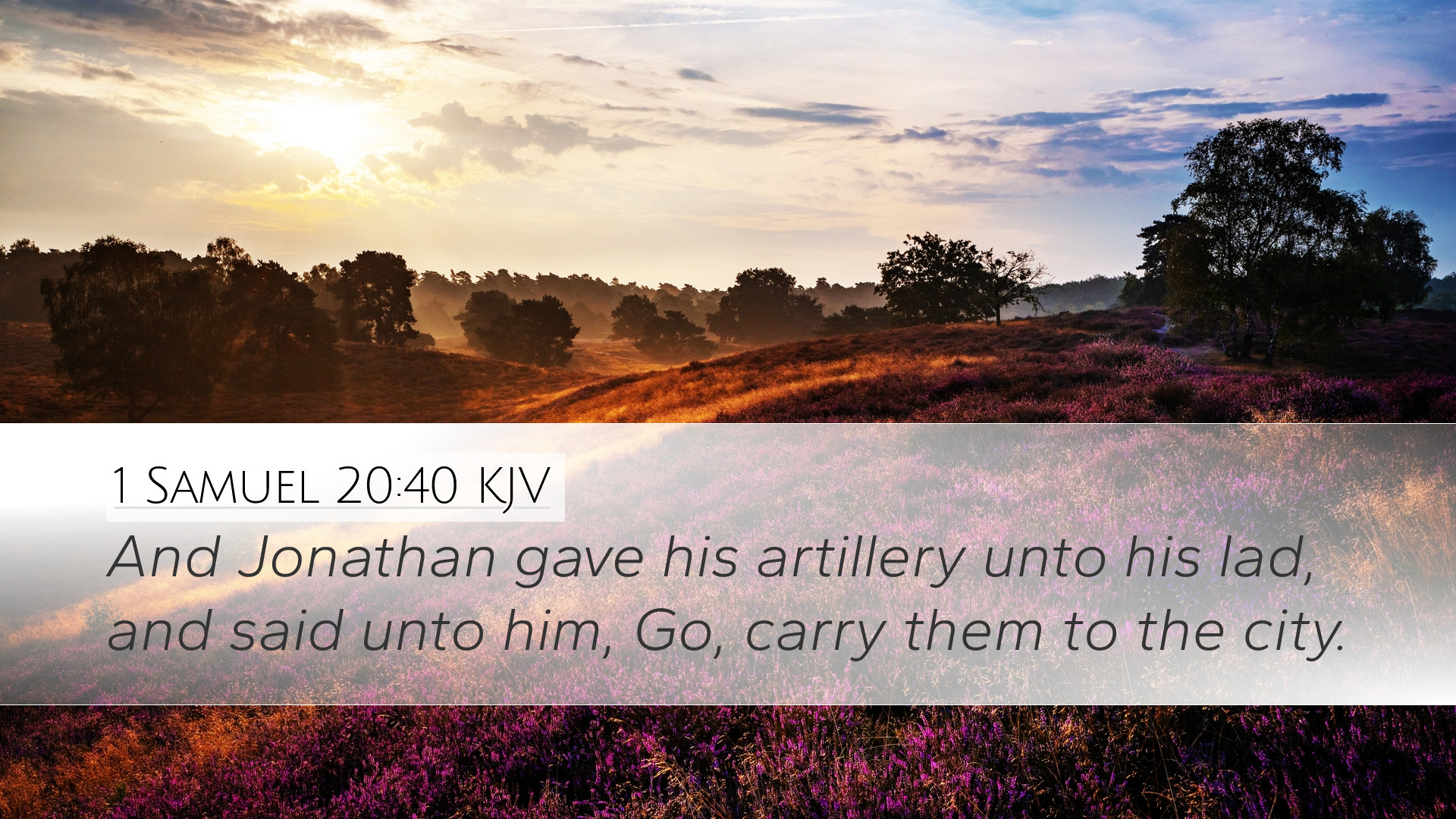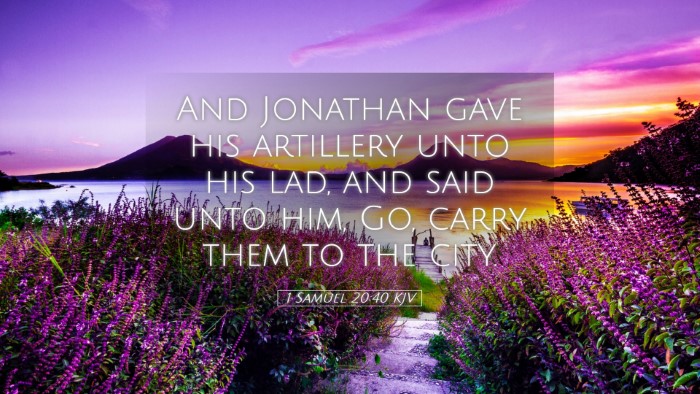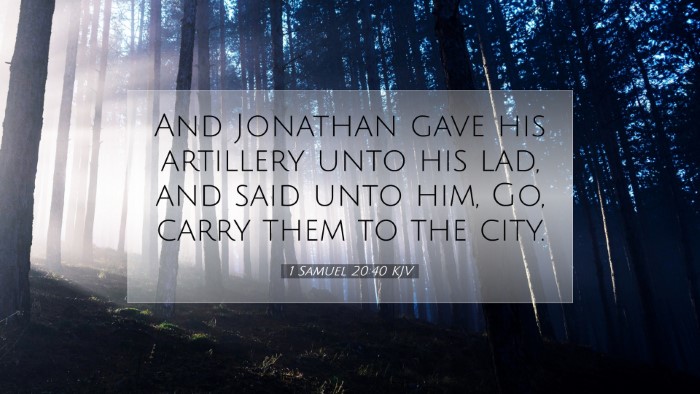Commentary on 1 Samuel 20:40
Verse Reference: 1 Samuel 20:40
In this pivotal verse within the narrative of David and Jonathan, we find a profound expression of loyalty, friendship, and the unfolding of God’s providential plan in the face of human opposition.
Contextual Setting
Historical Background: The events following the anointing of David by Samuel create a backdrop of tension and conflict, particularly with King Saul, who sees David as a rival. The friendship between David and Jonathan, son of Saul, stands as a beacon of covenant loyalty amidst political and familial chaos.
The verse occurs during a clandestine meeting between David and Jonathan, where they devise a method to communicate Saul’s intentions toward David, illustrating not only their friendship but also their care for one another’s well-being.
Analysis of the Text
1 Samuel 20:40: “And Jonathan gave his artillery unto his lad, and said unto him, Go, carry them to the city.”
This action by Jonathan signifies several important themes in this narrative:
- The Act of Giving: Jonathan entrusts his weapons to a servant, symbolizing his readiness to protect David and his loyalty by acting in accord with David’s safety.
- Sign of Preparedness: The artillery (which indicates not just weapons but readiness) points to Jonathan's understanding of the political scheming surrounding them.
Thematic Insights
Friendship and Covenant: Both Matthew Henry and Adam Clarke highlight that the friendship between David and Jonathan represents a covenant relationship, underscoring the importance of loyalty and commitment in genuine friendship. Jonathan’s actions are driven by love and his loyalty to God’s anointed.
Divine Providence: The actions of Jonathan serve as a means through which God ensures David's safety. Commentators such as Albert Barnes note that while human agency plays a role, it is ultimately God who guides the events surrounding David’s rise to the throne, emphasizing the theme of divine intervention in the affairs of men.
Symbolic Implications
Weapons as a Symbol: The handing over of the artillery can also be interpreted symbolically. As per Clarke, the weapons represent not only physical defense but a relinquishing of authority in the face of a greater calling. David is being prepared for greater responsibilities, which require stepping out of the usual patterns of power struggle.
City as a Metaphor: The city toward which the lad is sent may also carry deeper implications about society, safety, and belonging. The city can represent the realm of Israel, which is ultimately under God’s sovereign care despite the turmoil caused by Saul.
Pastoral Applications
This text can serve as a rich source for pastoral care in several ways:
- Encouragement in Loyalty: Teach congregants the value of loyalty among friends. Jonathan’s unconditional support for David exemplifies how believers might support one another in faith and adversity.
- Faithfulness Even in Opposition: Pastors can draw parallels to contemporary issues of loyalty to God’s calling amidst societal and family pressures, encouraging resilience and integrity.
- Providence in Uncertainty: The narrative encourages believers to trust in God’s providence during tumultuous seasons. Just as David found refuge through Jonathan, the church has a strong advocate—Jesus Christ—who ensures their safety and future.
Theological Reflections
Engaging with 1 Samuel 20:40 opens discussions surrounding themes of divine sovereignty, human agency, friendship, and the nature of loyalty. As Henry suggests, these themes should lead believers to reflect on their commitments—not only to one another but to God’s overarching narrative in human history.
Moreover, understanding Jonathan’s protective actions towards David poses questions central to the Christian faith regarding how believers are called to defend and uplift one another amidst opposition, embodying Christlike love in the community of faith.
Conclusion
In conclusion, 1 Samuel 20:40 serves as a cornerstone text illuminating the intricate dynamics of friendship, loyalty, and God’s providence. Through these themes, it challenges pastors, students, and scholars alike to explore the deeper implications of commitment to one another under God’s sovereign plan. The call to embody such love and protect each other as Jonathan did serves as an enduring message for all believers today.


